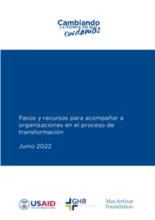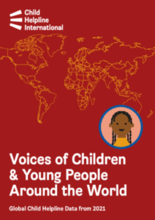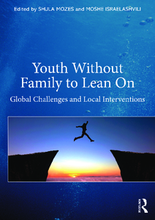Displaying 671 - 680 of 4424
Udayan Care invites you to their 4th in the series ICB's journal webinar.
Join Data for Impact (D4I) on September 27, 2022, at 9:30am EDT for a one-hour webinar introducing a new guide to build digital skills in the child protection workforce.
Este documento está diseñado para orientar a las personas u organizaciones que están apoyando un proceso de transición para pasar de proporcionar atención residencial a un modelo que promueva la atención familiar y comunitaria. El documento está diseñado en torno a las Fases de la Transición de Better Care Network. Se basa en el trabajo que Changing the Way We Care ha realizado en los últimos años para apoyar a diferentes proveedores de atención residencial, tanto religiosos como laicos, en su propio proceso de transición. Hay ejemplos y enlaces a herramientas relevantes, mensajes y actividades sugeridas que pueden utilizarse para apoyar las diferentes fases del proceso.
The aim of the conference is, therefore, to create a platform for all stakeholders to share and understand their role and responsibilities in supporting children in care and care leavers.
Conference sub theme include but not limited to:
In order to understand the issues faced by the children and young people who get in touch with child helplines, Child Helpline International interviews members around the world every year to gather information about the contacts they receive. This report provides an overview of the information recieved for 2021.
The Covid-19 pandemic may have fueled higher levels of maternal and child mortality in more than a dozen of the world’s poorest countries by causing women and children to skip health care visits, according to a new study.
This book 'Youth Without Family to Lean On' draws together interdisciplinary, global perspectives to provide a comprehensive review of the characteristics, dynamics, and development of youth (aged 15–25) who have no family to lean on, either practically or psychologically.
The webinar will explore participation in foster care with particular focus on individual decision making for children and young people. We will be hearing from people with lived experience of foster care in different contexts.
International Labour Organisation (ILO) estimates suggest that 50 million people - or one out of every 150 people alive - are trapped in forced labour or forced marriages. That is up nearly 10 million on its numbers from five years ago.
The Alliance for Child Protection in Humanitarian Action CPMS Working Group held an interactive webinar to support members in engaging and completing the recently distributed Self-Assessment Process for the Child Protection Minimum Standards



